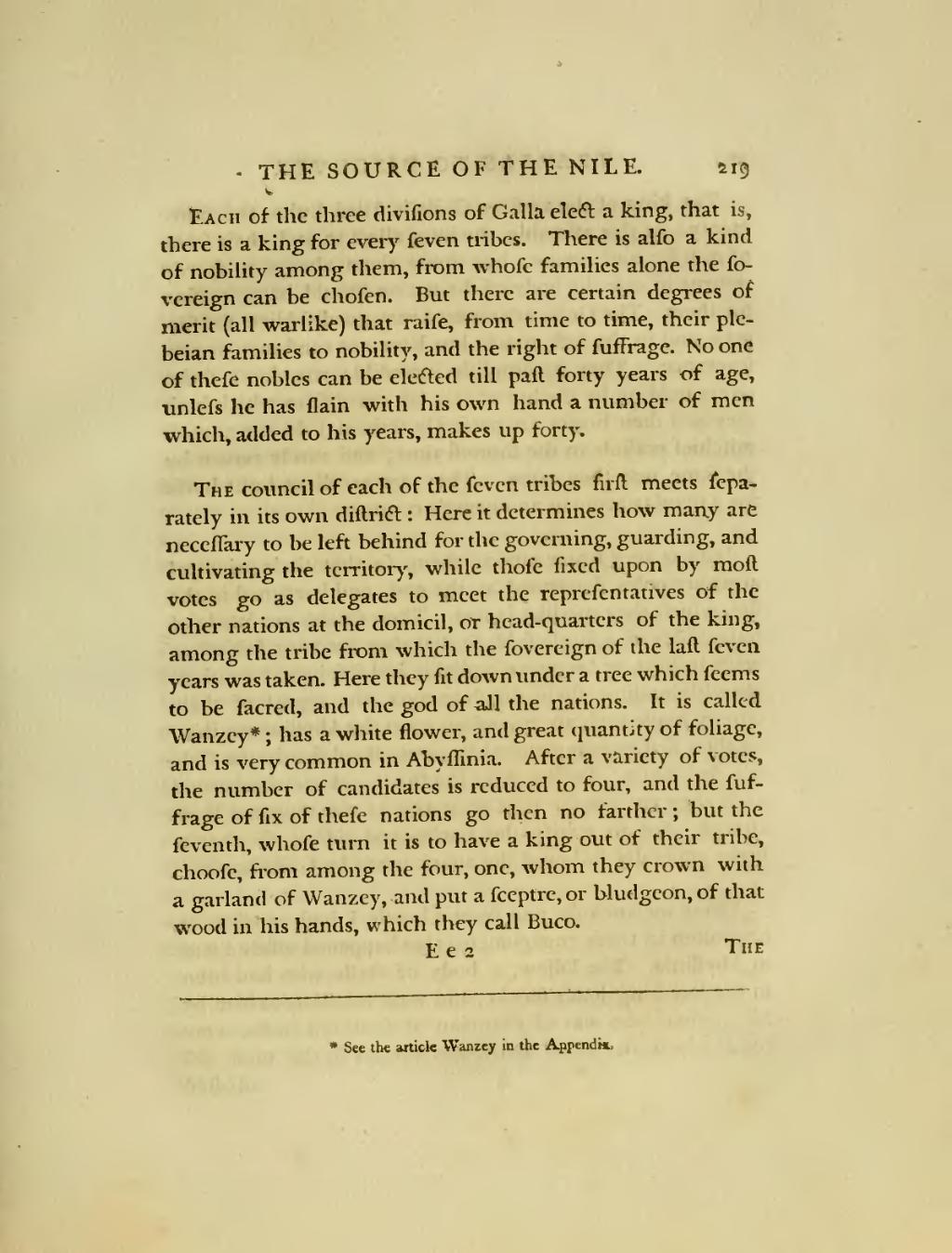Each of the three divisions of Galla elect a king, that is, there is a king for every seven tribes. There is also a kind of nobility among them, from whose families alone the sovereign can be chosen. But there are certain degrees of merit (all warlike) that raise, from time to time, their plebeian families to nobility, and the right of suffrage. No one of these nobles can be elected till past forty years of age, unless he has slain with his own hand a number of men which, added to his years, makes up forty.
The council of each of the seven tribes first meets separately in its own district: Here it determines how many are necessary to be left behind for the governing, guarding, and cultivating the territory, while those fixed upon by most votes go as delegates to meet the representatives of the other nations at the domicil, or head-quarters of the king, among the tribe from which the sovereign of the last seven years was taken. Here they fit down under a tree which seems to be sacred, and the god of all the nations. It is called Wanzey[1]; has a white flower, and great quantity of foliage, and is very common in Abyssinia. After a variety of votes, the number of candidates is reduced to four, and the suffrage of fix of these nations go then no farther; but the seventh, whose turn it is to have a king out of their tribe, choose, from among the four, one, whom they crown with a garland of Wanzey, and put a sceptre, or bludgeon, of that wood in his hands, which they call Buco.
- ↑ See the article Wanzey in the Appendix.
